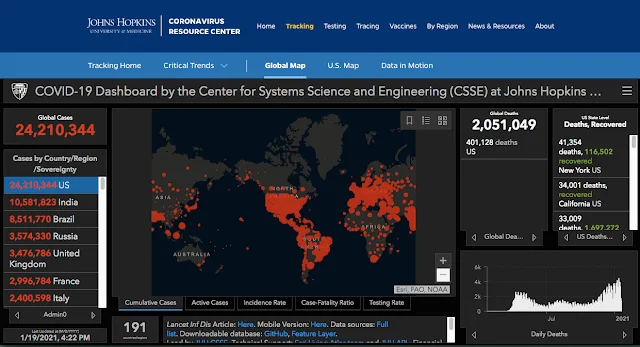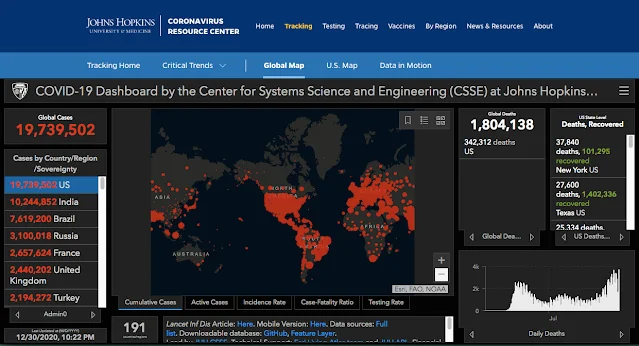Per Johns Hopkins University (data changes slightly as we write):
Global totals:
deaths 2,044,445 / cases 95,703,104
Case fatality rate 2.13%
G-7 nations Canada, France, Germany, Italy, Japan, UK, US, plus Australia and New Zealand:
deaths 713,992 / cases 36,041,142
Case fatality rate 1.98%
Rest of the world 2.23%
Ten other nations with the largest English-speaking populations (India, Pakistan, Nigeria, Philippines, Bangladesh, Egypt, Ghana, Russia, Thailand, South Africa / data quality obviously varies):
deaths 295,121 / cases 17,399,153
Case fatality rate 1.69%
South Korea, not shown above, is a good example of how no matter what nations seem to do to stop the spread of the disease, case fatality rates everywhere seem to be ending up in the vicinity of 2%.
Early on South Korea was impressing with a rate well below 1%, but today it is at 1.75%. Japan is up to 1.33%. Much vaunted New Zealand is up to 1.10%.
Compared with Canada 2.51%, France 2.38%, Germany 2.32%, Italy 3.45%, the UK 2.61%, and Australia 3.16%, the good ole USA 1.657% is doing much better than the hysterical headlines would have you believe.
That said, in the US COVID-19 is still sixteen and half times more deadly than influenza. This is a serious crisis, the long term health effects of which are not known.
A recent long term study from May to November in the US showed an alarming rise in hospitalizations for COVID among children. Another study from the UK indicated an alarming rise in the death rate for individuals six months after recovering from COVID. The impact of the disease on the human vascular system is typically acute in the lungs, but remains a still not well understood threat to the rest of the body and its organs.
You don't want to get it. 24 million in the US already have, just 7% of the population.

















































